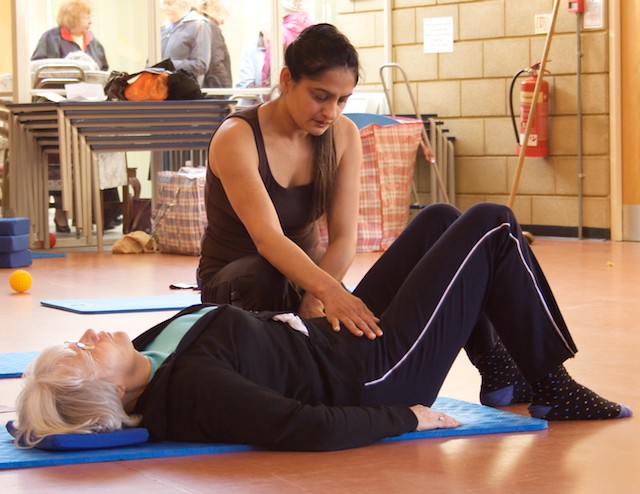Amazing Natural Remedies To Help Treat Angina Symptoms
Experiencing an angina attack for the first time can be very frightening as the symptoms are similar to those that occur during a heart attack. Any unexplained chest pain should be discussed with a doctor, so if the symptoms mentioned here sound familiar, please consult with a health professional.
Typically angina pain is experienced as a dull, tight or heavy pain within the chest. This pain sometimes radiates out into the back or left arm, or up into the neck or jaw.
The chest pain brought on by an angina attack is caused by a restriction in the flow of blood reaching the muscles on the heart. This usually happens as a result of narrowing and hardening of the arteries that supply the heart. The pain should last for just a few minutes.
If you have been diagnosed with stable angina, there are as few lifestyle changes, and natural remedies that can help treat your angina symptoms.
Healthy Diet And Lifestyle
Through eating a healthy diet and making lifestyle changes, you can improve the overall health of the arteries supplying your heart, and reduce the degree to which blood flow is restricted, in turn reducing the likelihood, severity and duration of angina attacks.
Reducing your intake of alcohol, saturated fats, and salt can all help reduce the hardening and narrowing of your arteries.
At the same time you should eat a diet of at least five portions of fruit and vegetables (ideally seven) each day, to ensure a plentiful intake of health promoting vitamins, minerals and antioxidants.
By focussing on the food you should be eating more of, you will notice that your intake of unhealthy foods will gradually decrease.
You can combat the arterial plaque already laid down, by eating a small amount of unsaturated fat each day. The good cholesterol found in foods such as oily fish, nuts, seeds, avocado and oils made from avocados sunflower, rapeseed and olives.
You can also reduce the load on your heart by maintaining a healthy weight for your height.
These changes can reduce the frequency and severity of your angina symptoms, and may also reduce your risk of heart attack and stroke.
Gentle Exercise

(Image Source: Flickr)
For many angina sufferers, exercise and exertion can trigger an attack, so it is important that you work within your fitness levels, and gradually build up your tolerance. You should also speak to your health practitioner before beginning a new exercise regime. Research has shown that yoga can improve heart health, reducing the incidence of angina attacks. This gentle exercise, suitable for people of all ages and abilities elevates the heart rate more gently than other more strenuous forms of exercise. The relaxation element of yoga also helps improve heart health.
Avoiding Triggers
By keeping a diary of attacks and possible triggers, it may be possible to identify what brings on your angina symptoms, and avoid this in future.
For many angina sufferers physical exertion is a common trigger for angina pain. By identifying occasions when you are pushing yourself too hard, causing too much strain on your body, you may be able to reduce the instances of angina attacks. Switching to online grocery shopping, installing a stair lift, and hiring a gardener are all small changes you could make to avoid pushing your body too far.
Other angina triggers to be wary of include extremes of emotion, cold temperatures, and even eating a large meal. All of these can put additional strain on your heart, causing it to work harder, increasing the demand for blood to flow through the surrounding arteries.
Cognitive Behavioural Therapy
Stable angina can be treated with Cognitive Behavioural Therapy. This type of talking therapy can help you comes to terms with and manage your condition by changing the way you think about it, and can even help you modify your behaviour. The therapy will help you develop practical ways of dealing with angina both in terms of preventing attacks, and with coping during an episode. Once you feel better equipped to deal with an attack, you may find the severity of your angina symptoms reduces.
Supplements

(Image Source: Flcikr)
Although there are no clinical trials supporting the case of health supplements in the treatment of angina symptoms, there is anecdotal evidence to suggest that some can be helpful.
In the early 1950’s Dr Wilfrid Shute, and Dr Evan Shute, brothers who were both cardiologists, began experimenting with the use of high doses of vitamin E to treat angina. They used daily doses of between 1,600 and 2,000 International Units (IU) of vitamin E with their patients and documented hundreds of cases experiencing and reduction of even cessation of angina symptoms.
The herb hawthorn has long been used by complementary therapy practitioners to treat high blood pressure. It has been proven to improve heart functioning in people with a known cardiac disease, and a 1997 study indicated it may be useful in the treatment of angina.
L-Carnitine, is an amino acid derivative that occurs naturally in the body. It works by decreasing the narrowing of the arteries, thereby improving blood flow to the heart and reducing angina symptoms. In a study in 2000, L-Carnitine was shown to improve the fitness levels of patients already diagnosed with stable angina.
Through a good diet, gentle exercise, and careful use of health supplements you can manage your angina symptoms and promote your overall health and well being.